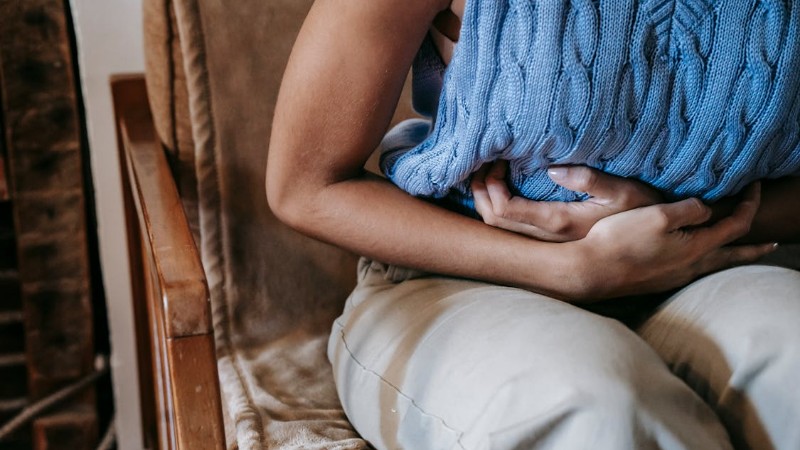Chronic pain impacts millions of Americans, particularly those in urban environments where stress and high-paced lifestyles exacerbate physical ailments. In cities like New York, the prevalence of chronic pain is a pervasive issue, compounded by a high cost of living and the constant rush of city life.
Dr. Mohammad Aalai’s innovative clinic, Pain-Free Lives, based in New York City, is addressing this challenge through non-surgical, patient-centred treatments that harness regenerative medicine. With an emphasis on individualized care and patient education, Pain-Free Lives is at the forefront of transforming how urban residents manage pain, aiming to empower them and reduce dependency on opioid-based solutions.
Dr. Aalai’s clinic combines advanced treatments like Platelet-Rich Plasma (PRP) therapy and Bone Marrow Stem Cell treatment, which activate the body’s own healing mechanisms to target the root causes of pain.
The approach provides a vital alternative to invasive surgery and pharmaceuticals, especially opioids, at a time when New York City faces an escalating opioid abuse crisis. Through a focus on long-term health outcomes rather than temporary fixes, Pain-Free Lives not only aims to alleviate pain but to redefine how chronic pain is managed in fast-paced urban settings.
Key Takeaways
Dr. Mohammad Aalai’s innovative clinic, Pain-Free Lives, is addressing urban pain management through non-surgical, patient-centred treatments that harness regenerative medicine.
- Pain-Free Lives combines advanced treatments like Platelet-Rich Plasma (PRP) therapy and Bone Marrow Stem Cell treatment to target the root causes of pain.
- The clinic’s holistic approach treats pain as a complex issue affected by physical, psychological, and lifestyle factors, empowering patients to understand their pain for long-term recovery.
- Dr. Aalai’s model is setting a new standard in urban healthcare by focusing on long-term wellness and patient empowerment through non-surgical options.
Holistic, patient-centered care
The holistic approach taken by Pain-Free Lives is unique in the sense that it treats pain as a complex issue affected by physical, psychological, and lifestyle factors. Dr. Aalai’s clinic emphasizes patient education, believing that empowering patients to understand their pain is essential for long-term recovery.
Also, empowerment encourages patients to take an active role in their health journey, giving them the tools and knowledge to manage pain sustainably. For example, PRP and Bone Marrow Stem Cell treatments focus on regenerating damaged tissues by utilizing the body’s natural repair mechanisms, fostering healing without the risks of dependency or invasive procedures.
By integrating these therapies, Pain-Free Lives is helping patients regain control over their health, reducing their reliance on potentially addictive medications. This patient-centered approach is particularly significant in New York City, where opioid abuse remains a persistent issue.
The clinic’s efforts contribute to a larger public health movement to combat the opioid crisis, providing an alternative that prioritizes health and wellness over pharmacological solutions. Moreover, this approach resonates with urban patients who may not have the time or inclination for lengthy surgical recoveries and are looking for non-invasive options that fit seamlessly into their busy lifestyles.
Expanding access and community impact
Dr. Aalai has made it a priority to ensure that Pain-Free Lives’s services are accessible across all five boroughs of New York City. The clinic’s goal is to make high-quality, non-surgical pain management options available to residents in diverse communities, recognizing that the needs of each borough are unique.
Accessibility is central to the clinic’s mission, aiming to bring relief to individuals who may otherwise lack convenient access to advanced treatments. This broad accessibility is coupled with a commitment to community engagement, as Pain-Free Lives actively works to educate New Yorkers on the benefits of non-surgical pain management and the importance of proactive healthcare.
Dr. Aalai’s initiative is more than just a series of medical treatments—it’s a model for addressing chronic pain in densely populated urban settings. Through educational workshops and community outreach programs, the clinic spreads awareness about the dangers of opioid dependency and the benefits of regenerative medicine, helping to reshape community perspectives on pain management.
The proactive approach has the potential to serve as a blueprint for other cities facing similar public health challenges, demonstrating the powerful impact that accessible, compassionate healthcare can have on an urban population.
Science meets spirituality in pain relief
While Pain-Free Lives focuses on scientifically-backed treatments, the journey of individuals like Joi Sharp highlights the complementary role that personal resilience and a holistic understanding of pain can play in recovery. Joi, who once endured severe chronic pain, adopted an interdisciplinary approach to her healing, focusing on the brain’s pain-generation mechanisms.
By understanding and influencing her brain’s defensive responses, she was able to restore balance, finding new sources of creative energy along the way. Her narrative emphasizes the potential of mindset shifts in managing chronic pain, reminding those affected that recovery can be influenced by both medical interventions and personal insight.
Joi’s journey represents a growing trend in chronic pain management that bridges scientific knowledge with personal empowerment. For many, recognizing the brain’s role in pain can be transformative, offering a fresh perspective on how pain can be managed or even reduced through mental and emotional recalibration.
The convergence of science and spirituality, often underexplored in conventional treatments, suggests that recovery may not be solely about addressing physical symptoms but about understanding the mind-body connection. As this approach gains recognition, it could inspire further interdisciplinary research and new therapeutic methodologies, providing chronic pain patients with a broader range of treatment options.
The future of pain management
Both Pain-Free Lives and the insights of individuals like Joi Sharp signify a broader shift in how chronic pain is viewed and managed, moving away from dependency on pharmaceuticals and towards sustainable, holistic solutions. Dr. Aalai’s clinics, with their emphasis on regenerative medicine and community-centered care, are already setting a new standard in urban healthcare by focusing on long-term wellness and patient empowerment.
By prioritizing non-surgical options, Pain-Free Lives addresses both immediate pain relief and the deeper, systemic issues that contribute to chronic pain, offering a path to recovery that aligns with the needs of modern urban populations.
As this paradigm shift unfolds, Pain-Free Lives is an inspiring example for cities worldwide, illustrating the transformative potential of accessible and compassionate healthcare. By combining innovative, non-surgical treatments with patient education and community outreach, Dr. Aalai’s model underscores that effective chronic pain management goes beyond the clinic, influencing public health on a larger scale.
This evolution in healthcare suggests that chronic pain need not be an unavoidable aspect of urban life but a condition that, with the right approach, can be effectively managed.
A compassionate future for chronic pain
Through both scientific advancements and an understanding of the psychological aspects of pain, Dr. Aalai and Joi Sharp’s combined efforts represent a comprehensive, compassionate future for chronic pain management.
Their work is redefining what it means to treat chronic pain, focusing not only on immediate relief but on the sustained well-being of patients. This forward-thinking approach holds the promise of a world where chronic pain is no longer a debilitating, unmanageable condition, but one that can be addressed through a combination of medical innovation, patient empowerment, and interdisciplinary care.
The continued expansion of Pain-Free Lives across New York City underscores the potential for significant public health improvements in urban communities. By focusing on patient-centered, non-surgical solutions, Dr. Aalai is providing new hope for individuals facing chronic pain, showing that with the right support and resources, they can lead fulfilling lives.
In a world increasingly burdened by chronic pain and opioid dependency, the work being done at Pain-Free Lives serves as a model for how compassionate, innovative healthcare can bring about lasting positive change.
As research advances and public understanding of pain management evolves, Pain-Free Lives stands as a testament to the resilience of the human spirit and the capacity for healthcare to empower individuals.
The pioneering approach not only paves the way for more effective treatments but fosters a healthcare landscape where chronic pain management is rooted in empathy, innovation, and community engagement. The work of Dr. Aalai and the inspiring journeys of individuals like Joi Sharp reveal a hopeful future—one in which chronic pain can be a manageable condition rather than an insurmountable barrier.















